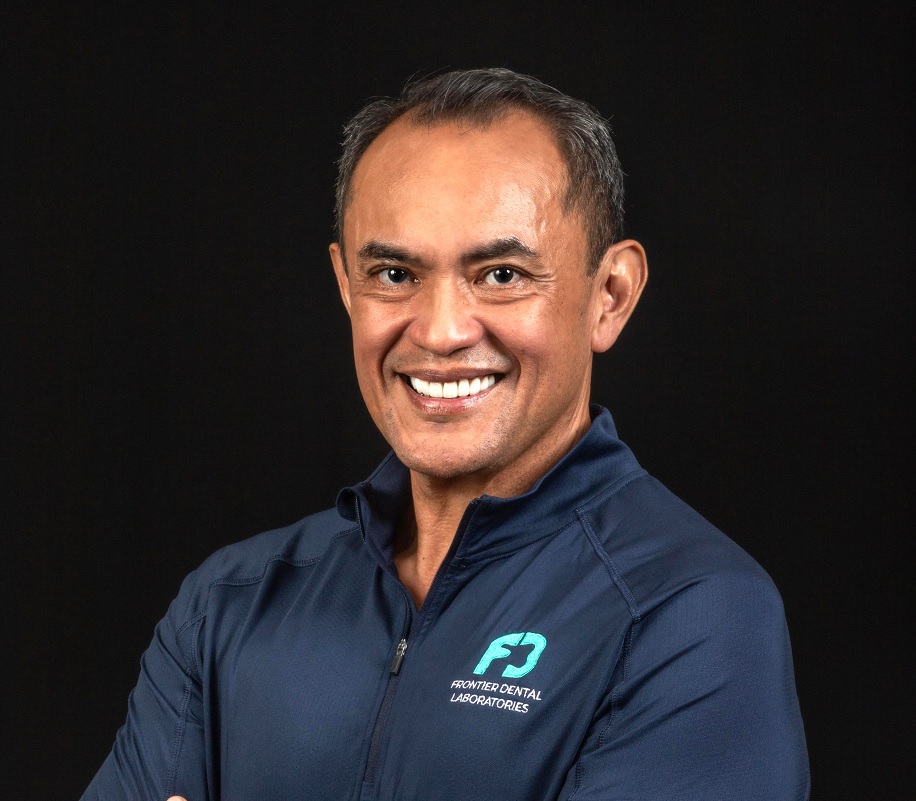What the Top CEOs Believe About Personal Branding?
It’s important for the people who lead a company to have a good image. This is called personal branding. Personal branding makes people want to work with the company and helps the company make money. This can help the company succeed by attracting more customers and partners. What a company is called (their “brand”) can affect how people see that company.
In this interview series, we asked CEOs, Founders, and business leaders in different industries about their thoughts on the importance of personal branding for a company’s leadership team. We also asked them how branding affects the perception of a company’s image.

Simon Bacher
CEO and Co-founder at Ling App
I’m Simon Bacher, Co-founder of Ling, a mobile edtech company specializing in language learning.
Ling recently underwent a huge rebranding, everything from our logo to our in-app characters to how we talk to our users. Since our rebranding, which included a company-wide brand guidelines workshop, our company has never felt more cohesive. Now, everyone has a clear vision of what our company is and what we stand for — an app made to help people connect through language.
We strongly believe that, especially in this day and age, branding positively affects a company’s image. People are more likely to purchase a product or engage with a company if its mission and values align with theirs. That’s one of the main reasons we decided it was time to rebrand five years after our initial launch. If any company out there is considering rebranding, we strongly encourage it.
However, don’t expect rebranding to come easy. It takes considerable time and effort from all different teams and individuals to make it come to life. Our rebranding process has taken over six months, and we’re not even 100% finished yet. It’s a slow process, but, in a way, it allows you to build your company again to align with the ideals you didn’t think of before and, in the end, be more appealing to users.

Logan Rae Founder, Management at Argon Agency
Personal branding is one of the most important components to building longevity in an industry. I’ve done it for myself, my team and encourage my clients to do it as well. It adds credibility and creates organic business if done properly. It’s the best investment as both an employee benefit and for retention strategy.
Of course the goal is to have positive branding however, in the case of a negative event getting ahead of the change actions and narrating the story can help.

Martha Holler Founder at ShinePR
My experience in branding and marketing includes 24 years at Fortune 500 companies where, whether we wanted it or not, our CEOs were the face of the brand. Every employee, and particularly the leadership team, are ambassadors who much live up to the brand every day. What do I mean by that? Keep the brand promise and values top of mind and driving every action. These people humanize the brand for others, and over time, their personality, behavior, and demeanor become synonymous with the brand. Steve Jobs and Apple. Martha Stewart and Martha Stewart Living. Elon Musk and Twitter. Take the Chief Twit title, for example. This is an overt example of the mashing up of individual and corporate brands.
Many people think a brand is just a logo, a tagline, or a color palette. It’s not. A brand is the sum total of all experiences and interactions and the perception that one has of you when you are not around. It is that net impression. So it easily follows that a leader, who is visible and vocal, will influence the brand perception of the organization he/she leads.

Art Shaikh Founder, CEO at CircleIt
Promoting the personal brands of leaders within a company is very important. A positive public image of the CEO or other leaders can do a lot for a company, and a negative public image can do a lot TO a company. Elon Musk is almost synonymous with Tesla, SpaceX and now, Twitter. The public perception of him is also how many feel about the brand. I feel it is important to not only have a personal brand as a CEO but also encourage my leadership team to promote theirs as well.

Rick Hammell Founder and CEO at Atlas
People tend to prefer companies whose values align with their own. So, a company’s leadership team should similarly reflect those values. A solid personal brand can influence whether someone wants to do business with you and attract talent.
One of our core values at Atlas is diversity. It’s embedded into our brand, reflected in our leadership team, and it’s essential to our work as an employer of record — supporting companies through global expansion. Collectively, our leaders have lived and worked across the world, speak several languages, and understand the nuances of different cultures. By sharing our stories and experiences, potential customers can identify with us.

Steve Schwab Founder and CEO at Casago
Establishing and maintaining an authentic personal brand is the key to setting your company apart from the competition. Focusing on building a strong personal brand affiliated with the company’s leadership team can center them as thought leaders in your company’s industry, which automatically boosts credibility significantly. Authentic personal branding builds trust between a company and clients, and opens the door for networking opportunities to partner with other businesses that share the same values.

Brian Greenberg CEO and Founder at Insurist
In my experience, personal branding is the single most important thing you can do as a leader. It’s the first thing people think about when they think of your company, and it’s one of the only things that will help people remember your company long after they’ve forgotten everything else.
Personal branding has two main aspects: positive branding and negative reputation. Positive branding is what happens when people think about you and say, “Oh yeah! That guy from.. is so cool.” A negative reputation is what happens when people think about you and say, “Ugh, that guy from… is such a dirtbag.”
It’s easy to see how these two things affect perception: if people have a positive impression of you and your company, they’ll probably be more inclined to consider purchasing from you; if they have a negative impression of you and your company, they’ll probably be less inclined to consider purchasing from you.

Zeeshan Arif Founder and CEO at Whizpool
In my experience, I’ve found that the personal branding of a company’s leadership team is extremely important to the perception of a company’s image.
In general, if you look at how people view a company, they don’t often see it as an individual entity. Instead, they conceptualize it as a group of people who have been organized in some way. So when someone is thinking about a company, they’re not thinking about all the things that make up the company—they’re thinking about the people who are associated with it. That’s why branding yourself as an individual, and making sure that your name is out there in positive ways (or negative ways) affects your personal brand and can affect your perceived image as a leader.
For example: If you’re trying to raise money from investors or potential clients, you want them to have positive associations with your name and your public persona. If they think negatively about you personally (because you’ve done something unethical or illegal), then they will probably associate those same negative feelings with any product or service provided by your business.

Waseem Ballou Co-Founder at Teez Agency
Branding today is much more than just a logo and tagline, but it’s what your brand is, what it represents and what the brands’ goals and mission are. Today many consumers want to get behind a brand that has messaging and a persona that they can get behind and support and that is very crucial in building the fundamentals of a new brand. When a new brand comes to fruition, it’s important to identify what your brand will embody and target. Once that has been established, you can build brand strategies, product launch initiatives, and partnership strategies to ensure that everything is in-line and in tune with your brand. Things to consider as you work on this include:
- How do you set yourself apart from your competition?
- Why pick your brand vs the competition?
- What does your brand stand for and the impact it would create on the consumer and industry?

Sara Sheehan Executive Coach and Change Consultant at Sara Sheehan Consulting
Although I have worked with large consulting firms my whole career, personal branding was not the primary focus as much as client relationship development and account growth. The relationships were the focus and uncovering the business challenges leaders need to solve. In consulting, relationship and account development will always be critical. However, while I worked with IBM, I pivoted from consulting and held two global marketing leadership roles with Software Group that provided extensive real-world experience in this space. The team I worked with completed a global launch of a new category of computing and I was personally responsible for all of the messaging globally and for securing C-level participation in keynotes and panels for our launch events held around the world.
I also led the production of a long-form video highlighting business partners that completed critical steps to enable their solutions and software to be available for purchase on the platform. Working with senior executives at Software Group revealed how many leaders were actively scheduling social media posts as well as speaking or writing solo books outside of their day jobs. Leader profiles even provide disclaimers that the views posted are from the individual and do not reflect the employer. In Software Group, expert authority was extremely positive, and it was a way of life. The impact of leaders living out their truth as tip-of-the-spear brand ambassadors, innovators, and technologists positively impacted business success and many individuals’ long-term career success. Additionally, since most senior executives down to middle managers were actively shaping their personal brand, there was a real team spirit in supporting each other and the greater good toward achieving desired business results. Indisputable expert authority definitely supports your personal and business long-term success.
Through that experience, I am applying everything I have learned by developing my own expert authority and I understand that being visible and known is even more important when you have worked under the veil of larger organizations. Through this experience with Software Group, I mastered being comfortable with putting myself out there and being known in my zone of genius. Personal branding can positively impact the awareness and recognition of an organization if executed effectively.

Vince Lusardi Chief Experience Officer at Everest.com
Why is personal branding important to the modern brand? Simply put, people connect on a deeper, richer level with other people than with a logo. For example, take the iconic brands of Apple and Tesla. These are two brands built on the personal branding of Steve Jobs and Elon Musk, respectively. The imagination of these leaders is reshaping our world. We connect with the vision of these leaders, and their stories energize our sense of contribution.
The fastest way to build your brand is through you, the person. Consumers buy from businesses when they feel like they know the person behind that business.
Personal branding is creating mental real estate by painting that future state that no one else can see and enrolling everyone into that journey. The framework for building your personal brand is serving others and being evangelical to the cause. Importantly, don’t be afraid to put content out there.

Stephanie Scheller Founder/CEO at Grow Disrupt
As someone who is both the CEO of a company (Grow Disrupt) and manages a revenue-generating personal brand (The Impact Authority), I think it’s a powerful concept, when it’s done well.
The challenge is that, too often, there’s very little differentiation between the CEO’s personal brand and the actual company brand. So then two brands are being run simultaneously that look identical and can cause confusion in the market.
There has to be clarity on who the CEO is and what their personal brand is, what it stands for, the messaging behind it, and the voice of that messaging. And it should be distinct to the company brand.
That also said, I think a personal brand for executive leadership can be a valuable tool to drive awareness, attention, and support the brand development for the company.
For example! Looking at Disney and Bob Iger. Iger has a less traditional brand, but he’s being welcomed back warmly because his personal brand is perceived as being able to help the Disney brand, which has had a few stumbles in the past period.
That also said though, the CEO’s personal brand can quickly become a drawback if it is managed poorly or if the CEO makes decisions that don’t align with the overall brand. For example, Papa John’s and John Schattner a few years back.
In a classic ‘house of brands’ approach though, the company brand does have the option of severing ties with that CEO if they feel the personal brand of that CEO is bringing down the company brand. So, done well, it can be a huge asset with limited risk.

Bethany McCamish Bethany Works® | Strategic Design Studio
To put it simply: branding, or lack thereof, is the difference between someone investing in you or your competitors. While your brand is the actual perception people have of your company (aka what they say when you aren’t in the room), your branding – from your social media graphics to your website visuals – is THE thing that captures, holds, and resonates with your clients or customers. It is what shapes that perception they hold.
As we continue in the age of information, endless scrolling, and rapid online trends – your brand is what will hold everything together – or cause it all to fall apart and become invisibile. When I build brands for CEOs my signature method includes psychology-backed branding that allows for a cohesive brand to emerge and expand while speaking directly to ideal clients and customers through intrinsically understood archetypes and transformation stories. If making sure your build personal brand that speaks to your people isn’t on your 2023 list- it should be. In fact, it should be priority number one in order to hold, shape, and/or shift your company perspective.

Clāra Ly-Le Founder and Managing Director at EloQ Communications
Clāra believes that the founder is the most important selling point for smaller companies. An essential part of their responsibility is to conduct personal branding, making the business an extension of its founder.
Once the founder is well-known and trusted, so is the company. Since the early days of EloQ, she has participated in various industry events and global networking sessions to showcase my expertise and slowly bring EloQ’s name to the table.
As a result, EloQ also started to get recognized by international clients and colleagues. At the moment, the company is the first Vietnam agency able to join the prestigious Public Relations and Communications Association (PRCA). We’re also a part of the Public Relations Network (PRN), comprising PR agencies worldwide to execute regional PR campaigns.
EloQ also gained the trust of overseas clients to act as their media representatives in Vietnam, including Rakuten Viber, AstraZeneca, Intel, Hong Kong Tourism Board, etc.
It all started with Clāra’s personal brand effort, and these efforts continue to have a positive impact on EloQ Communications’ branding. Once we have established EloQ’s credibility, that’s when the EloQ team unites and goes the distance.

Ryan Turner Founder at Ecommerce Intelligence
I think in many industries it is highly important for the founder to have a strong personal brand, and I’ll be putting a lot of time and effort into this myself in 2023. In some markets – especially B2B markets – it is fairly straightforward to become a micro-influencer in your industry where you’re well known on Twitter, LinkedIn, etc. There are a few key benefits to this. Firstly you’ll of course see some inbound lead flow from simply posting helpful content and case studies on organic social channels. This is almost free marketing to a highly targeted group of potential clients or customers. Secondly, I feel that building a strong personal brand automatically means your business has an increased level of trust and credibility. If you’re a public figure online openly speaking about what you do and teaching others there is an underlying assumption you must do good work and get good results. It is very hard to have a personal brand if you don’t provide a lot of value in your business and deliver on promises made – you’d simply get too much negative feedback when putting yourself out there. Having a personal brand in your industry gives you a level of credibility and trust which just cannot be faked. This is extremely helpful in the sales process and for setting your business apart from other competitors in the market.

Danielle Martins Personal & Business Brand Specialist at Danielle Martins
It is no longer enough to have excellent products and services in today’s market climate. Consumers nowadays want to know about the brand’s history, what makes it unique, and how it has evolved through time.
While some CEOs and workers choose to remain anonymous and private behind their computers, establishing and using your Personal Brand can be a powerful tool in every entrepreneur’s toolbox.
A strong Personal Brand is more than a sales tool: It helps you create the perfect market competitive advantage, thus not having a Personal Branding strategy puts your business at a significant disadvantage.
Here are some insights on how cultivating a strong Personal Brand can impact your company.
People don’t connect with products and services – People connect with people
In our hyper-connected world, caring for and managing your reputation is critical to your company’s success.
With the internet, today’s typical consumer does extensive research on any product or service they want to purchase, so humanizing your corporate brand has proven to be more important than ever to create an emotional bond between your business and your customers.
That being said, you can count you already have the greatest career asset you could ever want: Your Personal Brand.
Communicating who you are, why you do what you do, and sharing your values helps you build stronger, more purposeful relationships with your stakeholders, directly benefiting and increasing your company’s results.
It helps you build market differentiation
When you think of Facebook, you can’t help but think of Mark Zuckerberg. Jeff Bezos is the founder of Amazon. Bill Gates is the founder of Microsoft. Virgin, too, is a physical manifestation of its founder, Richard Branson. Apple is Steve Jobs. These people are the faces of their companies. They are linked to their brands like magnets.
Companies like Amazon, Microsoft, Virgin, and Apple don’t necessarily do branding differently. Their CEOs are simply entirely committed to their companies and they use the power of their Personal Brands to leverage them. They are coherent with their values, and goals. Their work is a reflection of the company’s ideals and goals.
Becoming a well-known, and respectable founder can open doors and seal agreements even if your company is new in the market. Competitors can do what you do but they can never become who you are, your Personal Brand, and in that lies your superpower.
Be aware that your business will be perceived as an extension of yourself, the human being behind the creation, and your team, thus, this is great market differentiation.
It helps develop stronger connections
“Organizations are nothing more (and nothing less) than a collection of individuals who are in a relationship.“ ~Blaine Bartlett
People only do business with those they know, like, and trust, and building trust is the ultimate goal of any Personal or Corporate Brand.
A strong Personal Brand can be pivotal for many entrepreneurs’ success. Your Personal Brand adds value to your company, but success in business does not boil down to brand awareness only: it’s more about reputation, credibility, and trust. Consumers desire to have a favorable impression of a company’s reliability before becoming clients, thus using your Personal Brand strategically is vital to the success of your business.
But how can you make sure you have a powerful Personal Brand that adds value to your business? Start by figuring out how you’re currently perceived by others. When someone types your name on Google, what do they find? How do people in your network perceive as being your strengths and how does that match up with how you perceive yourself? How can you close the gap between internal perception and external perception?
Coherence between thinking and behavior generates trust and this draws the right people to you: consumers who believe in your mission, other entrepreneurs who want to be a part of creating something with you, and employees who feel compelled about joining your journey—that’s when great magic happens!
So, if you want to deeply impact your company’s results and achieve sustainable success, start with yourself by developing your Personal Brand.

Jenna Guarneri Founder of JMG Public Relations, and author of the #1 best-seller, “You Need PR”
Public relations is no longer just about promoting company and their product or service. A good PR strategy finds a way to connect with their consumer in a more direct and personalized way. The world is so cluttered and brands are vying for the attention of their consumers, so by creating a more humanized approach, a brand is automatically standing out from their competitors. We also saw an increase of interest from consumers for a more thoughtful and deeper connection with the brands that they support as a result of quarantine and COVID-19. To create this type of personalized connection, we develop a PR strategy, not just around the brand, but also their CEO who can also be the (co)founder. This person’s personal brand is just as vital to the business. If the founder gets press, the company gets press. They go hand in hand, so by putting a face behind the brand, consumers subconsciously feel like they know the company and they become personally invested in them. Additionally, when the CEO is speaking about the industry in larger trend stories, they are become a thought leader and therefore, a more credible source as an expert. Consumers like making purchases from brands they trust and a high level of credibility earns that.

Daniele Marinelli Founder & CEO at UMetaWorld
The CEO is the face of the company. His or her values and temperament set the tone for the company’s overall image and culture. With a strong personal brand and reputation as a leader, it makes the company more attractive to potential partners, customers, and investors, it reinforces the company’s credibility and encourages loyalty and trust from its stakeholders.
A leader, through their words and actions, can set an example that encourages others in the organization to strive for excellence and make a positive impact in their work. This, in turn, leads to higher engagement, better collaboration, and improved overall performance.
Tesla and Facebook are terrific cases in point, during the period when the leadership enjoyed their strongest brand, the companies also flourished.
We often say products are so good that they sell themselves. Well, business leaders wish that was true, but they know better. Products are sold by the entire organization. While one sales person can burn the image with one potential client or partner, the CEO bears the weight of the organization, and can burn the organization’s image.

Gil Villavecer Chief Marketing Officer at Frontier Dental Labs
As Chief Marketing Officer, it is very important for my personal brand to portray and align with our company brand, FrontierVeneers. While personalization is critical for social media success, it must be representative of what the company is trying achieve. With my personal brand, I want our customers to know they are speaking or messaging with ME directly and not a bot or any other representative of the company. Therefore, politics, religion, extreme views or anything distasteful or viewed as offensive to any one or group is not on my brand or the company’s brand. We want to be perceived as friendly, easy to do business with, safe and credible with a product that lives up to our brand promise. We can be funny, witty, entertaining and still be professional to portray what our brand delivers.
This interview was originally published on ValiantCEO.







